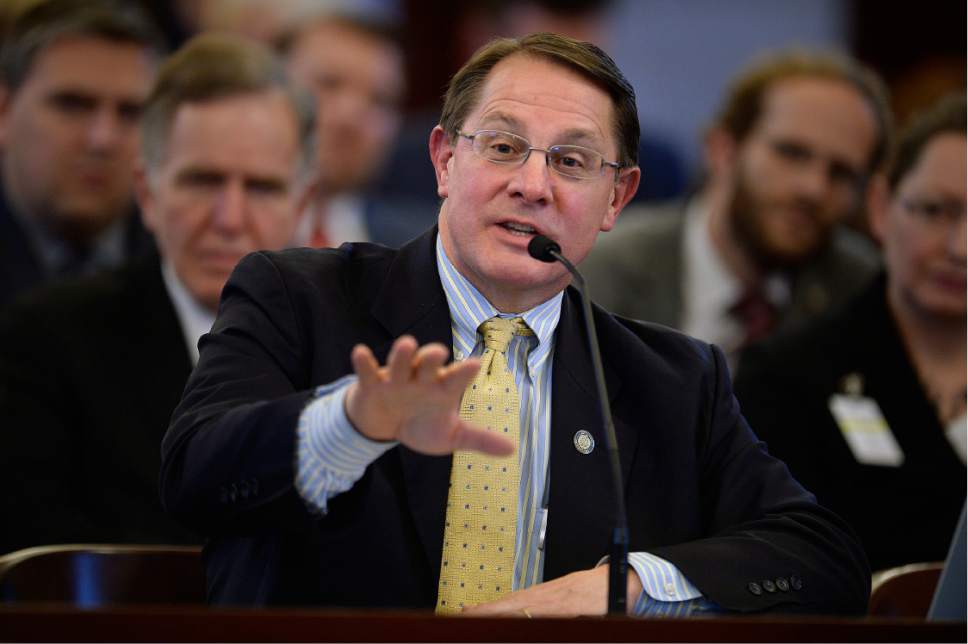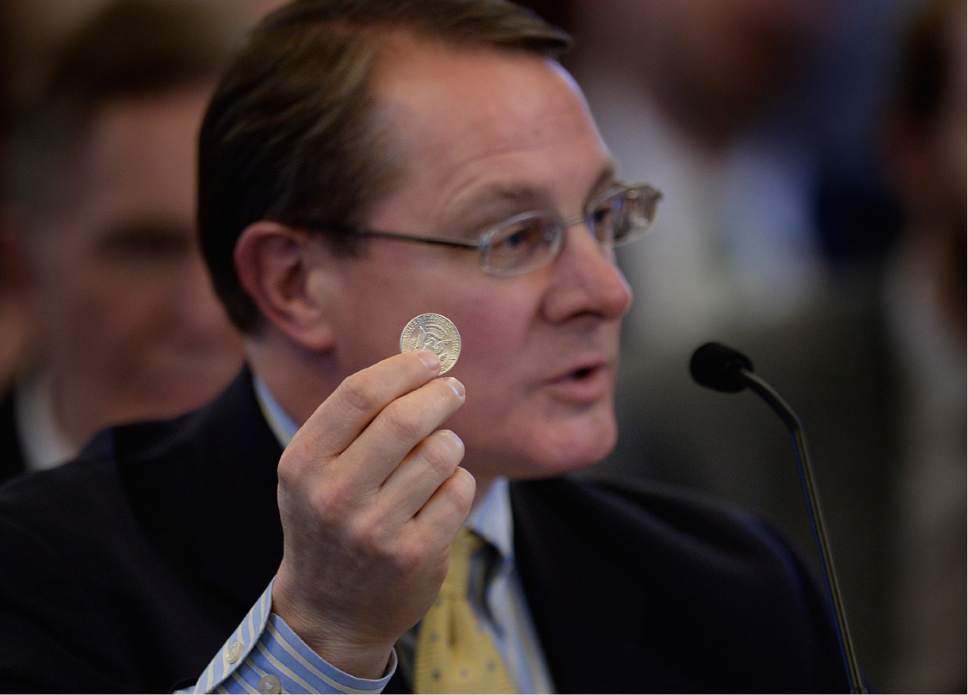This is an archived article that was published on sltrib.com in 2017, and information in the article may be outdated. It is provided only for personal research purposes and may not be reprinted.
American money proclaims that in God we trust, but one Utah lawmaker does not have unfailing trust in the U.S. dollar — and pushed a bill Wednesday to allow the state to hold some of its funds in gold and silver instead of Federal Reserve notes.
It also would allow Utah to place gold and silver into a commercial repository — such as the local United Precious Metals Association. That would allow it to use so-called "gold dollars" or "silver dollars" — credits based on the value of the metal in its deposits — to pay state bills.
Rep. Ken Ivory, R-West Jordan, said his HB224 could allow the state to avoid relying solely on federal money during emergencies such as bank failures, a currency collapse or a currency war between countries.
However, Ivory said he still has work to do on the bill, and asked the House Revenue and Taxation Committee to hold it for consideration later.
But Ivory still gave some early arguments about why his idea might help save the state in possible emergencies — and help its investments hold value better than Federal Reserve notes.
Ivory held up a 1964 silver half-dollar coin. "In 1964, this little coin would buy about three or 3½ gallons of gas. Today it won't buy a fraction of a gallon of gas," he said. "But the value of the metal of the coin would buy three gallons of gas. That's what we're talking about in terms of preserving purchasing power."
He said the number of grams of gold needed to buy $1 has fallen dramatically through the years, so stockpiling gold itself would have prevented a loss to inflation.
College tuition, priced in gold, "is about the same as it was in the 1930s," Ivory said, adding that the price of food based on the value of gold has fallen over time.
Ivory said an economic risk analysis recently completed for a state commission studying how to reduce dependence on federal funding figured the chance of a "currency war" is about 20 percent in coming years, which could seriously devalue savings in dollars. He said the chance of the U.S. dollar losing its primacy in world markets is as high as 75 percent over time.
Ivory asked Jonathan Johnson, chairman of Overstock.com, to explain how his business is also stockpiling some silver and gold as a guard against bank failures or currency problems.
Johnson said Overstock has purchased enough silver and gold in small coins to pay its employees for several months in case of such emergencies. "It's not been a bad investment for us, and it's just something we've done as a business trying to be prudent."
Ivory said, "It would be public policy malpractice not to look at hedging our risk."
In 2011, Utah became the first state in over 80 years to pass a law making gold and silver coin legal tender. Ivory said his new bill would build on that.





